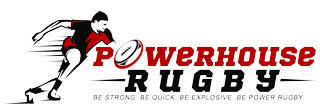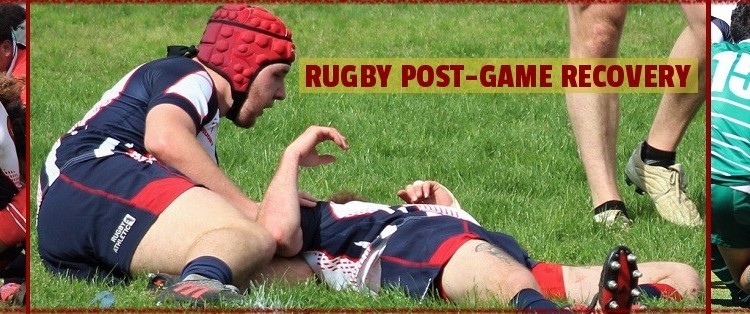8 Rugby Post-Game Recovery Methods
Recovery enables your body to replenish its energy reserves by reducing fatigue and rehabilitate any injured soft tissues. Post-rugby game healing and post-rugby training recovery are all about what methods and activities you utilize to boost your body’s rehabilitation time.
Planning your recovery is as important as planning your training or prepping for a rugby game. Your exercise drills and weight training days simply encourage your body’s fitness revolution, the real transformation happens in the time of recovery.
Your personal recovery plan should be based on your body’s needs, your level of fitness, whether it’s during rugby season, and what works best for you. I encourage you to experiment with the following 8 recovery methods to establish your own individualized post-game recovery plan.
8 Post-Game Recovery Methods
1. SLEEP.
Sleep allows the brain to repair and the body to recover. When you are asleep your body’s energy can be utilized to restore your muscles through an increase in growth hormone production. A good night’s sleep is a priority post-game.
2. HYDRATION.
One word: water. Post-game you should immediately hydrate with water. I know quite a few rugby players like to go straight to drinking beer after a game, but I advise against this because alcohol will further dehydrate and interfere with getting a good night’s sleep. Alchohol lengthens your recovery time and the faster you recover, the better rugby season player you can become. If you are in a rugby game for 50 minutes or more or in temperatures above 72 degrees or in humid climates where you sweat a great deal, post-game you should hydrate with a liquid containing potassium and sodium. Many athletes prefer Pedialyte for this reason.
3. MASSAGE.
Massage helps improve circulation and lessen the effects of inflammation. It also helps the muscles to relax and retain flexibility. It goes without saying that massage is also a great pain reliever. Besides being great for blood flow, massage is good for moving out lactic acid from your muscles.
4. ICE BATHS.
It is important to discuss ice baths with your doctor and perform them only after your body has cooled down from exercise. It is said that ice baths help to battle any small tears in your muscle fiber and relieve the muscle soreness aftermath that can follow an intense rugby game.
5. NUTRITION.
See recovery method number 2 above and start there. For rugby players, it’s tempting to go for that ice cold beer as part of your immediate recovery, BUT it is better to begin with a liquid such as Pedialyte along with ingesting 20-50 grams of protein. Alcohol is broken down in the liver and you need your liver to work on glucose production instead.
Registered dietician and athletic performance expert, Elena Davis offers the following foods to consume recommendations within 30 minutes post-game:
• Peanut butter and banana sandwich on whole-wheat bread.
• Non-fat chocolate milk (I prefer you drink Whole chocolate milk. More milkfat, less sugar).
• Fruit shake made with banana, strawberries, mango, 100% fruit juice and non-fat yogurt.
• Beans and brown rice.
• Sports beverage containing carbohydrate and protein.
• Cereal with non-fat yogurt.(Again, I prefer Whole milkfats and Greek).
• Turkey and cheese on whole wheat bread. (Chicken is great, too)
• Peanut butter on crackers. (Or peanut butter on Whole Wheat toast).
• Granola bar and a glass of nonfat milk. (I recommend Whole Milk).
• Pasta with a lean meat spaghetti sauce (Whole Wheat or rice noodles).
• Graham crackers and yogurt.
• Peanut butter and apple slices.
I also like scrambled eggs with spinach as a quick after-game snack.
6. FOAM ROLLING.
Foam rolling is considered an SMR, or self-myofascial release technique to relieve soreness and improve range of motion. This is a great tool for relieving muscle pain.
7. ACTIVE RECOVERY.
Active recovery exercises can help with the pain and stiffness after a rugby game. Swimming is a great active recovery exercise. Bicycling is another one. In the days following a game when you do hit the weight room be sure to lift only at 85%* of your normal weight load. Focus on the speed of your lifts and sets over adding more weight. (*Source: Director of Sports Performance for the Purdue Boilermakers, Duane Carlisle)
8. RELAXATION.
Meditation and or gentle Yoga are a great addition to your post-game recovery plan. Anything that alleviates stress and reduces your cortisol levels will help speed up your recovery, both physical and mental. Using meditation to picture your success on the pitch for the next game is also a great way to prepare your mind while your body recovers.
Conclusively by giving extra attention to post-game recovery, you will reap huge rewards on the pitch come next rugby game day.
Leave a comment and let me know your thoughts.
Get to it NOW.
Coach Terry
REMEMBER: Before starting any new exercise routines please check with your medical provider and clear your new exercise plan with them before beginning. This is especially true if you haven’t been exercising for some time or are recovering from an injury. I am not a doctor, nor do I play one on T.V.
![]()
Be sure to take a moment to sign up for the Tryline Newsletter and follow this blog for more upcoming advice from my coach’s corner.
Need help getting started towards your power rugby fitness goals?
The Powerhouse Rugby weekly newsletter seeks to supply you with the top rugby fitness drills, nutritional suggestions, and advice from coaches and players to help make your rugby goals a reality.
When you sign up for the newsletter, we’ll send you our free training guide and workout tracker which includes this exercise drill and more.
Click on the image to the left to sign up today!




